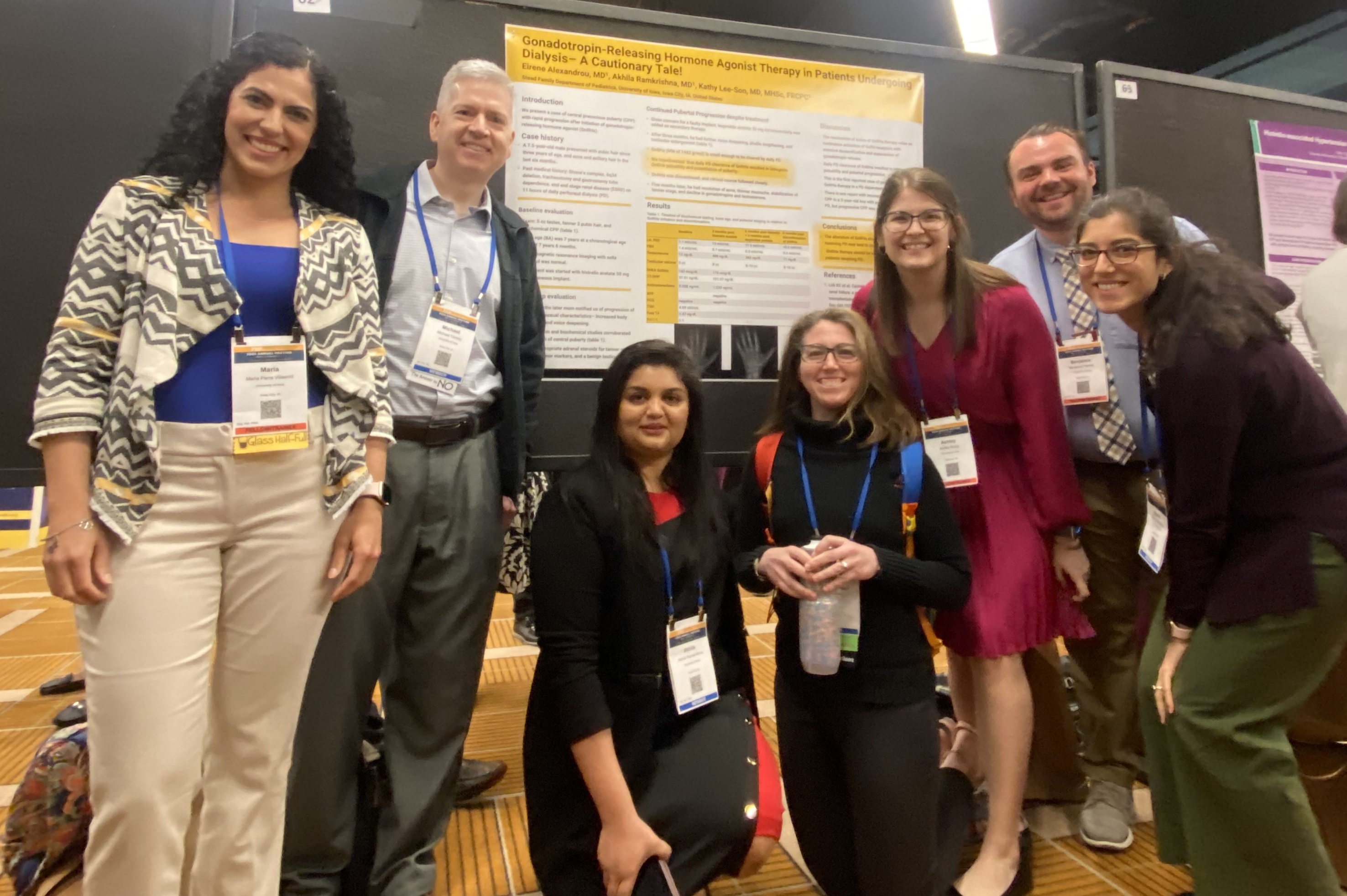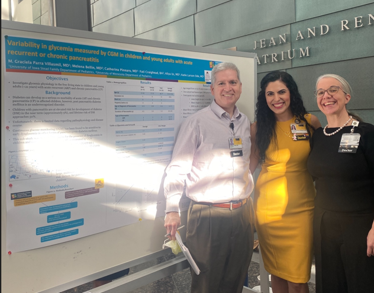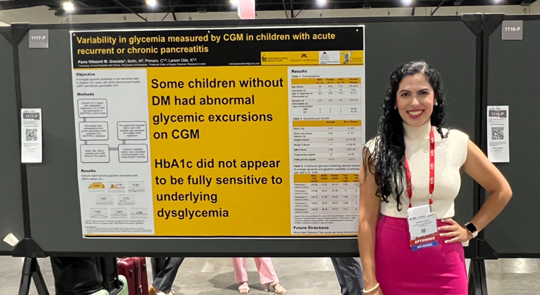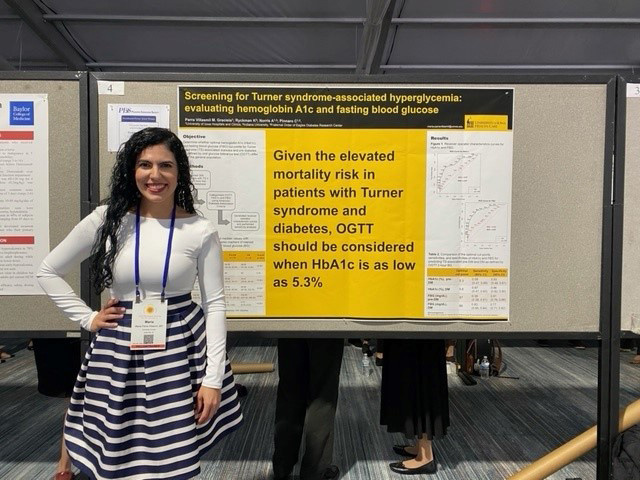Main navigation
As trainees proceed through our program, it is expected they will actively engage in the process of their own education. To enhance educational skills of trainees, each pediatric endocrinology fellow is required to give four to six didactic presentations (e.g., review a clinical topic, etc.) and/or research updates annually.

Conferences and Additional Opportunities
Conferences
Required and Expected Conferences
| Name (frequency) | Purpose |
|---|---|
| Pediatric Endocrinology Division Conferences (Weekly) |
|
| Combined Adult and Pediatric Endocrinology Grand Rounds (Weekly) |
|
| Endocrine Immersion (Every other Tuesday) |
|
| Clinical Endocrine Conference (Weekly) (Time slot competes with core curriculum) |
|
| Pediatric Fellows' Core Curriculum Conference (Weekly) |
|
Optional Conferences
| Name (frequency) | Purpose |
|---|---|
| Pediatric Grand Rounds (Weekly) |
|
| Endocrine Tumor Board (Monthly) |
|
| Frontiers in Obesity, Diabetes and Metabolism (Weekly) |
|
| Pediatric Endocrinology Radiology Conference (Monthly) |
|
| Multidisciplinary DSD Conference (Monthly) |
|
| Combined Genetics-Endocrine Conference (Monthly) |
|
Additional Opportunities
We are part of a robust and innovative academic community at University of Iowa. Additional opportunities to pursue a Master’s degree in Medical Education (MME), Clinical Research, and others have been completed by our fellows and other fellows during their fellowship. If this is of interest to you, please let us know.
Fellows are able to take advantage of courses outside of the College of Medicine when applicable.
In addition to our core conferences and seminars, there are a variety of additional educational offerings provided by other departments that fellows are encouraged to attend when applicable, including Internal Medicine Grand Rounds, Obesity Initiative Conference, Frontiers in Medicine, etc.
In the past, fellows have taken the following courses:
- TBM 5002: Translational Biomedicine Critical Thinking and Communication- Study Design and Communication
- TBM 5003: Translational Biomedicine Critical Thinking and Communication- Writing and Presentation Strategies
- TBM 5004: Translational Biomedicine Critical Thinking and Communication- Scientific Writing and Presentation Strategies
- TBB 5005: Translational Biomedicine Critical Thinking and Communication- Career Development and the Funding Process
- TBM 5006: Translational Biomedicine Critical Thinking and Communication- Leadership, Teamwork, and Mentoring
- BIOS 4120: Introduction to Biostatistics
- EPIC 4400: Epidemiology Principles
- BME 5330: Computational Geonomics
- GENE 6150: Bioinformatics
Research
Our division actively publishes in both the basic science and clinical research realms. Basic research within our division includes the work of division director Dr. Andrew Norris.
Visit our Research page on our academic website for an overview of research in the division of pediatric Endocrinology and Diabetes. You can also find a list of our publications here.
Research Expectations
All fellows in our program are required to complete two years of either basic science or clinical research. Fellows are encouraged to explore research within the division and collaborative research projects with other pediatric divisions.
There are many opportunities to initiate or join a clinical research project. Some of our faculty members are involved in ongoing clinical trials.
Fellows are encouraged to attend and present at our institution's annual Pediatric Research Day and national meetings (PES and ADA)


